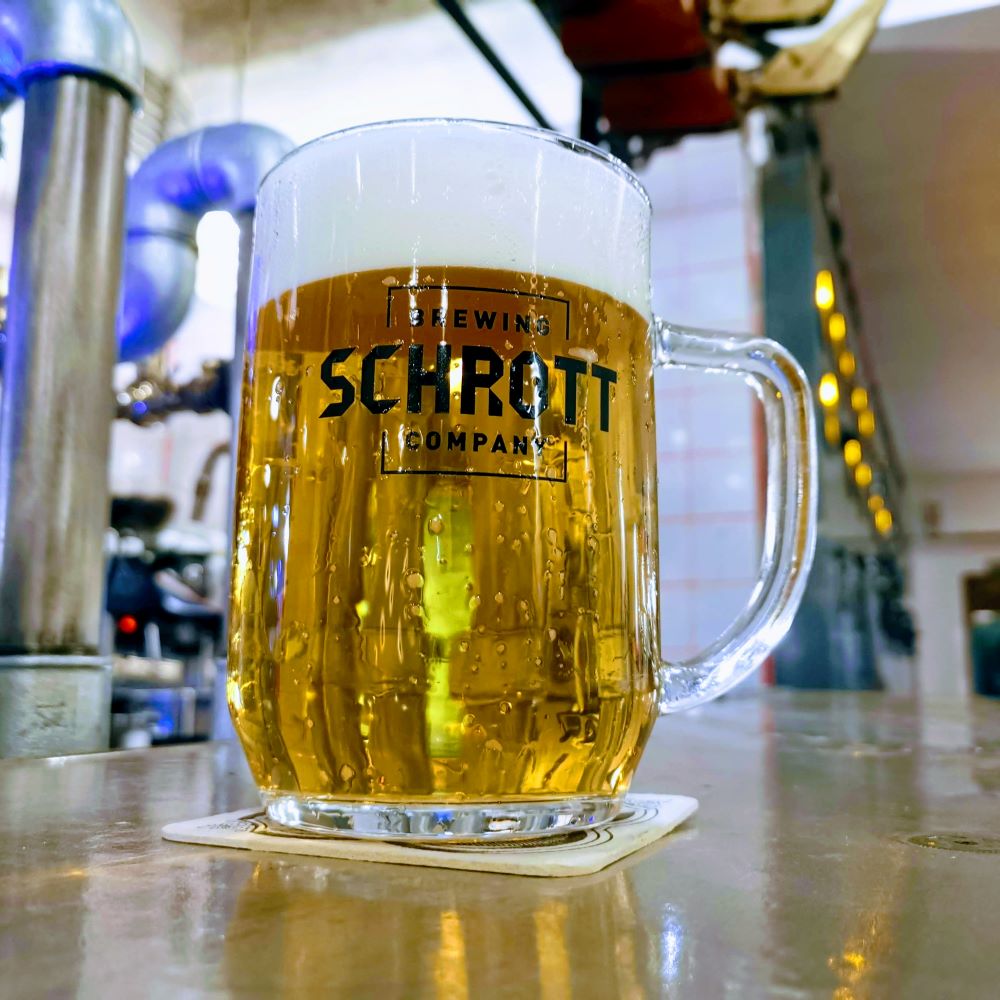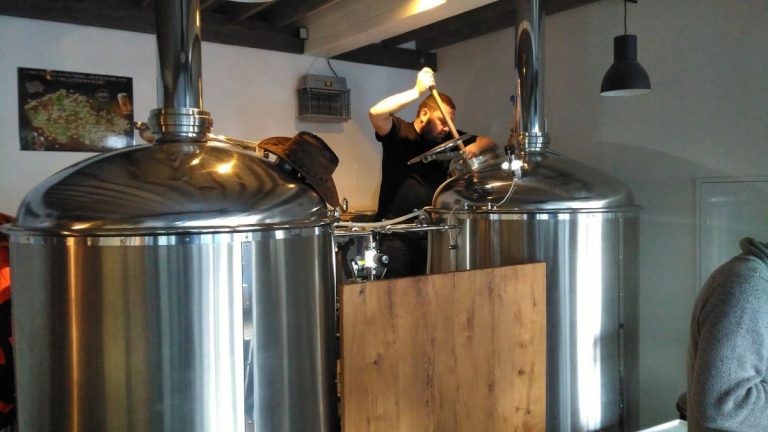Our “Special Interests” series takes a look at some unusual or special-interest hobbies that people have in the Czech Republic. In the sixth article of the series, we spoke to Tomas and Honza from the Schrott brewing company, who started brewing from home over 15 years ago. Their beer is now sold in the Schrott gallery and bar on Křenová. Photo credit: Schrott.
Brno, May 28 (BD) – “We met each other thanks to some home brewing forum,” says Tomas from the Schrott brewing company. “We wrote some messages about beer first and then we met, talked about beer, and exchanged some recipes.”
Then in 2015, when friends of Honza and Tomas opened Schrott, they got the chance to brew beer for them. “We developed some recipes for Schrott and started to brew them as a contract in local craft breweries.”
Honza and Tomas brew many different styles of beer, including lagers, IPAs, APAs and some Belgian and German types. “We usually have five of our beers here on the tap in Schrott,” says Honza, “and we change them throughout the year, depending on the season.”

The brewers prefer to use natural ingredients for their beers. Currently, they are selling a German beer called gose, which originated in Goslar and Leipzig. What makes it special is that it contains two atypical ingredients, salt and coriander, and has been fermented first with lactobacillus, which gives the beer a fresh and sour taste.
Another beer the brewers are proud of is their Keller beer. This beer comes from the Franconia region of Germany and is conditioned in an oak cask, which gives the beer a particular woody flavour. But one of the brewers’ own favourite styles is smoked beer, in which smoked malt is used. Honza and Tomas created their own Rauchmärzen, which is sold during the winter months.
When Tomas and Honza brewed their beer from home, they only made ales, and other top-fermented styles, because they can ferment at normal room temperature. But since their batches of beer are now about 2,000 litres, the beer is brewed at several friendly breweries in the region. They cooperate with a lot of other brewers, with whom they often meet to discuss their beer – and taste it, of course.
“We taste a lot of beer, talk about it, think about how to mix the ingredients, how to improve it, what basic and special malts and mixes of hop to use, and so on,” says Tomas.
These are things that have to be considered very carefully, because although the brewing itself only takes about 8 hours, the whole process of finishing a beer can take more than two months, depending on the type.






